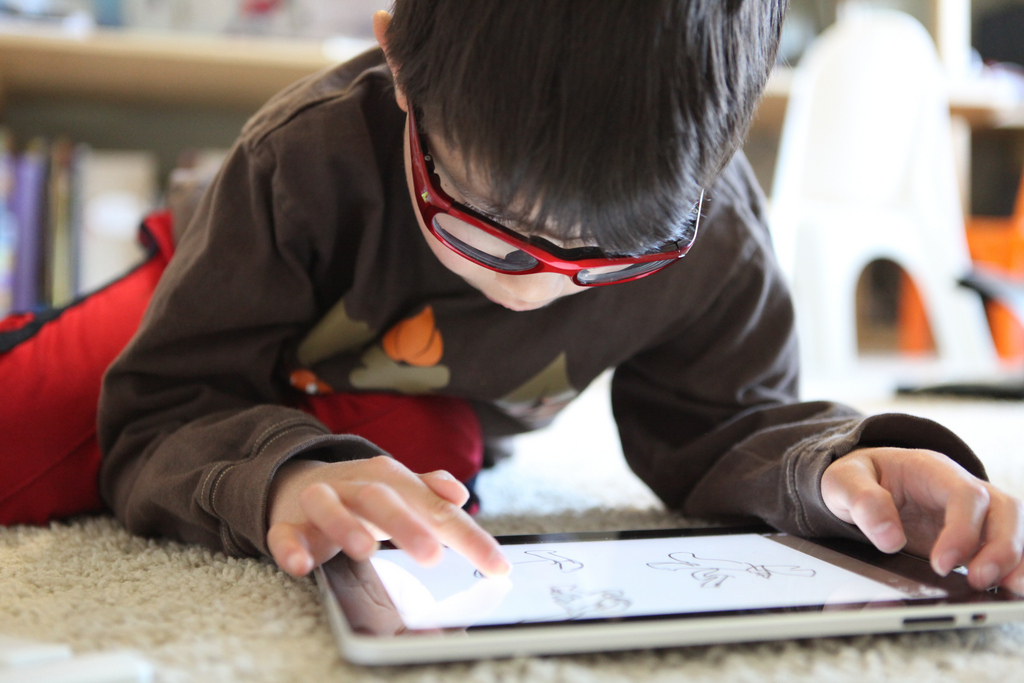Self-directed learning is a concept that sees the student choosing the subjects they study and building the ability to assess themselves in their own learning outcomes. Typically self-directed learning is talked about in adult education circles; however, research involving younger pupils in self-directed learning activities has also proven to be a great success.

Photo By: aperturismo
Inspiring curiosity and a ‘thirst for knowledge’ is the greatest gift a teacher can pass on to their pupils. However, as Ken Robinson describes in his How Schools Kill Creativity lecture, under the traditional teacher-led schooling model, students have very little scope for pursuing their own interests and, because of exam pressures, very little freedom to make and learn from their own mistakes.
Luckily self-directed learning can be introduced to your classroom through the use of technology (namely smart tablets). Here are five of the best apps to facilitate aspects of self-directed learning to your existing KS2 lesson plans.
For Revision – Mind Meister
Graphic organisers or ‘mind-maps’ have been proven in studies to improve retention of information, reading comprehension, attainment, as well as thinking and learning skills in students. SimpleMind and its super intuitive controls allow younger children to create mind maps easily. Use SimpleMind to introduce a new topic to your KS2 class, getting them to collate their prior knowledge or ideas into a lovely mind map and then, once you have covered the topic, get them to look back at it and add the new pieces of information.
For Applying Knowledge – Pettson’s Inventions 2
Pettson’s Inventions 2 is a puzzle game that gets children to apply their knowledge of physics and maths in order to develop their creative and logical thinking skills. Children work through the levels by inventing crazy contraptions to solve the given puzzle. This game can also be played in pairs, allowing the pupils to collaborate and test their theories amongst themselves to collect achievement ‘cogs’ and win the game. This puzzle app develops the child’s problem solving skills and can therefore be used to supplement a related maths or science lesson, or it can be purchased for use at home.
For Collaboration –Toca Store
TocaStore is another great puzzle game that can help young children in the KS2 age-bracket develop their money management, teamwork, negotiation and creative thinking skills- all in one app!
Children can either play by themselves or collaborate in pairs as they take on the role of shopkeeper in their own store. The graphics and sounds are all very fun and the overall ‘feel’ of the app comes across as a game rather than a maths lesson. For teaching students about money, Toca Store can complement your lesson plan.
For Creativity –Toontastic
Storytelling is a great skill to learn as a child. Not only does it help them make their own imaginary games way more fun, an appreciation for storytelling can help foster within a child a love of literature that will last throughout their entire lives. Toontastic is an app that teaches children the mechanics of storytelling by helping them create their own cartoons, which can also incorporate their own voices as well as cute little bits of animation and sounds.
For Building Analytical Skills- Little Solver
Little Solver is a game that helps children develop their analytical and critical thinking skills by getting them to compare and notice relationships between the objects on-screen. Cognitive skills that can be developed through this game include, analytical reasoning, problem solving, perception and spatial relational skills.
For more tips on outstanding lesson planning for KS2, check out our other great teaching resources and if you have any other apps that are a hit with your pupils, share your recommendations below.
